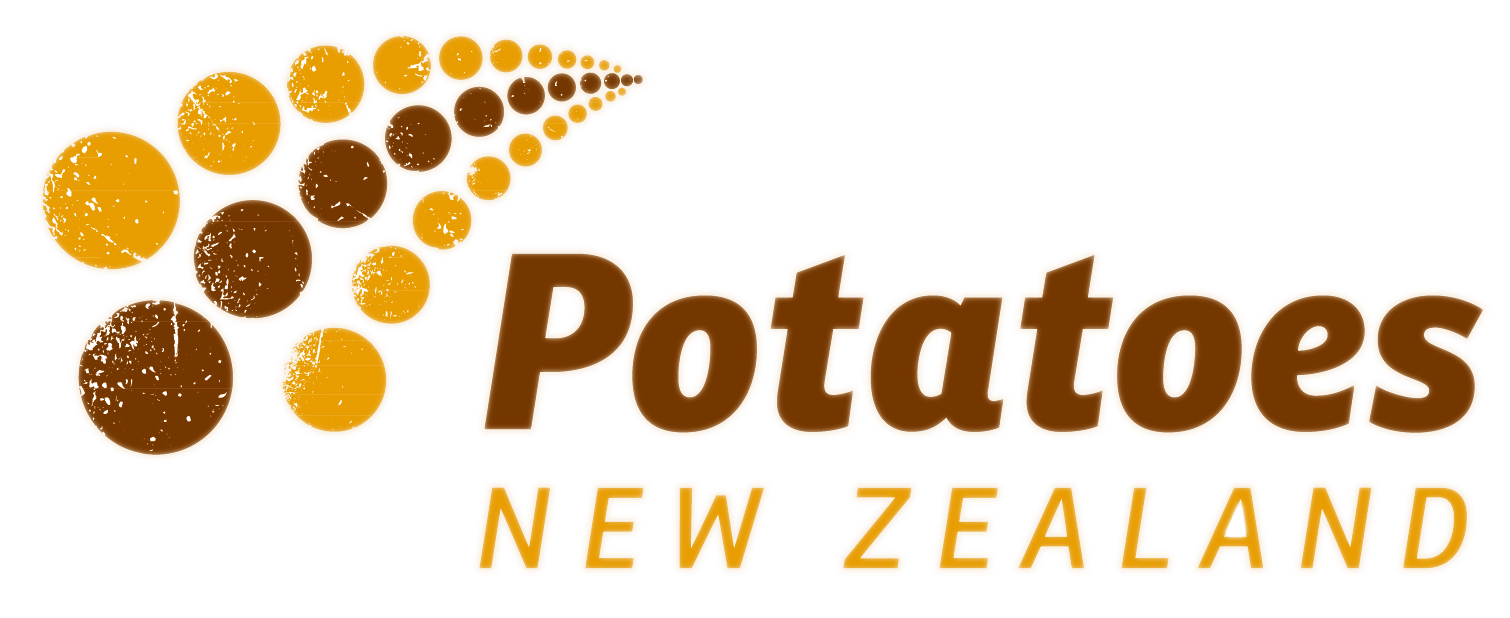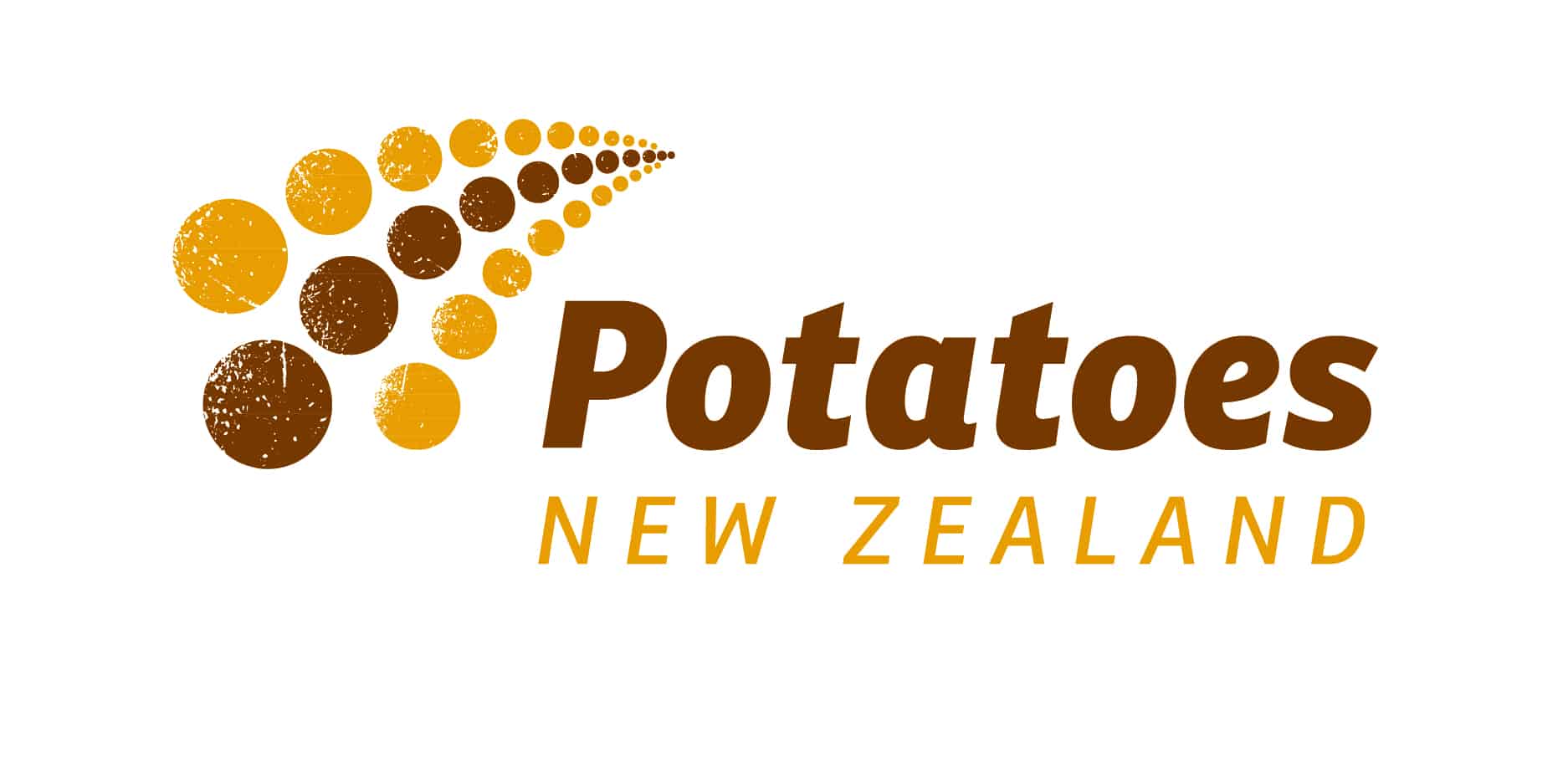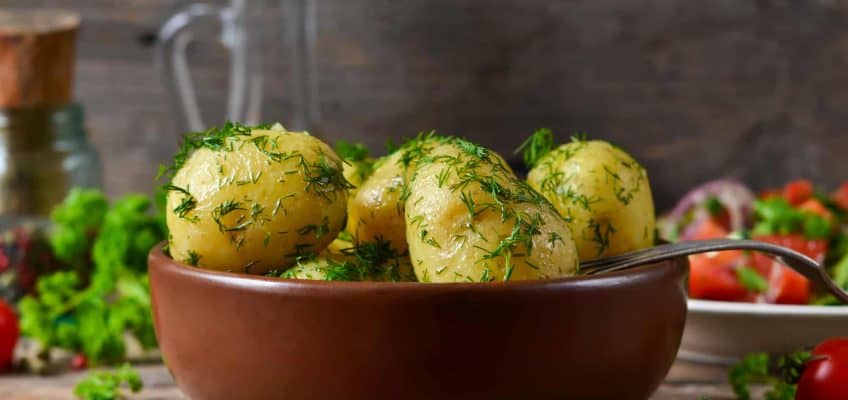Update by Jen Linton, Potato Research Manager, FAR
The number of trials and sites around the country has made the 2016/17 potato research season an exciting one for the research team. We are very pleased with how the season has gone and the teamwork across the various groups and organisations involved on the ground has been excellent, helping to ensure we are able to get the most out of the potato levy.
However, it wasn’t all easy going; harvesting trials was challenging, with rain delaying digging in South Canterbury. This was a challenge faced by many growers as well. Preliminary results are showing some interesting trends. Statistical analysis of results will take time due to the amount of data collected across all sites this season, and we expect to start releasing findings in the form of Potato Updates in the winter months.
Some of the key trends to emerge following mid-season assessments from the main research areas for the season are listed below.
In furrow fungicides for the control of soil borne diseases
This trial is evaluating different fungicides applied either as seed tuber treatments or in-furrow at planting, to evaluate efficacy for control of soil borne diseases. Both treated and untreated seed was used to determine the role of seed borne diseases. Standard crop management was undertaken by the grower and disease assessments were made at full and late canopy. Yield (t/ha) of marketable tubers was also measured at harvest.
Mid-season results showed rhizoctonia stem canker presence consistently across the trial area no matter which fungicide treatment had been applied. Symptoms on underground stems mainly showed as lesions near the soil surface, indicating that the pathogen may have been in the soil before planting. At full canopy, there were no strong indications that the range of fungicides were controlling spongospora infection. Full results for this trial are due to be released as a Potato Update in June/July.
Crop rotations, soil compaction and biofumigation
This project, which is supported by the MPI Sustainable Farming Fund, is invesitgating the contribution of biotic and abiotic factors on potato yields, by monitoring soil physical quality, and soil and plant health during crop growth. The impacts of paddock history on crop yields are also being isolated and measured, and this season the project also included an investigation into the role of potato seed tuber health on crop performance. Initially this project included sites across New Zealand, but this year, all 15 trials have been in Canterbury. There is lot of data to analyse so it is not yet possible to draw conclusions based on results. However, one interesting development from the seed tuber work, is that the research team have been able to identify whether the Rhizoctonia symptoms on plants originated from seed or soil borne pathogens. This ability will assist with ongoing research into control options.
The potential of biofumigation as a technique for control of soil borne disease was also investigated as part of this project. The large scale trial showed similar levels of spongospora and rhizoctonia infection across all treatments, with or without the biofumigant crop, and no differences in yield were recorded. However, although there was no clear benefit in disease control or yield from the biofumigant crop in this trial, there could be benefits from incorporating the organic matter associated with the biofumigant crop.
Bio fumigation trial – Temuka 2016/17 Season
End of season TPP management
To address the issue of late season management of TPP, this project is developing and testing a late season soft insecticide programme, along with different ways to destruct the potato haulms whilst controlling TPP. Six commercial fields in Canterbury received the same soft insecticide programme (no organophosphates or neonicotinoids). They were then divided into four desiccation treatments, and tuber assessments were taken throughout the season and kept for one month before processing. Harvest will be done commercially with yield assessed by the grower and processor and samples will be taken at the factory for zebra chip as per factory protocol.
We are very much looking forward to seeing the results of these large scale, grower initiated trials and expect to have results out in the form of a Potato Update in August.



